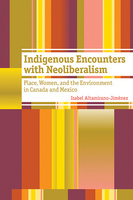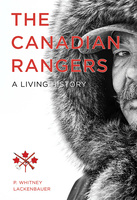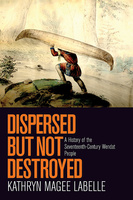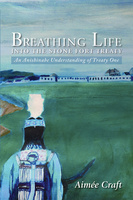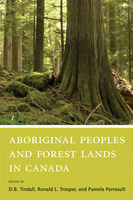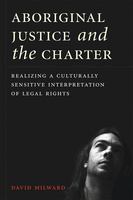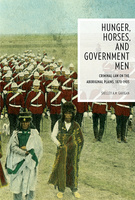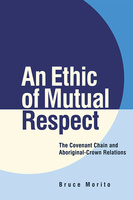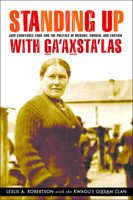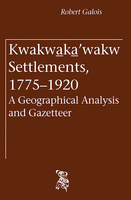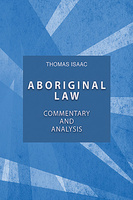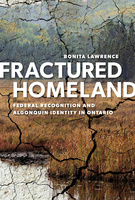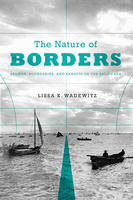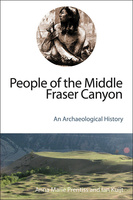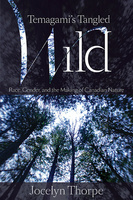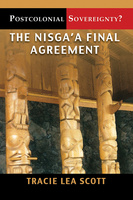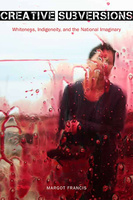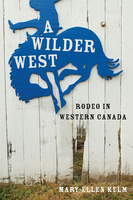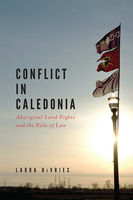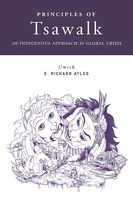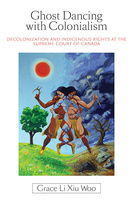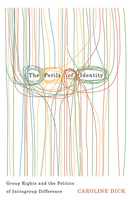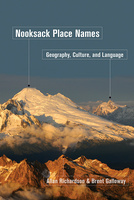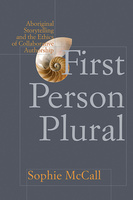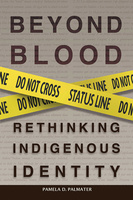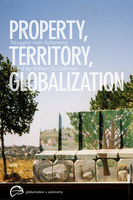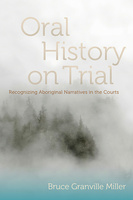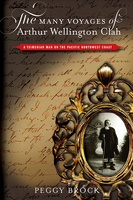Indigenous Encounters with Neoliberalism
Place, Women, and the Environment in Canada and Mexico
A cross-comparison of gender and indigeneity in the neoliberal contexts of Canada and Mexico.
The Canadian Rangers
A Living History
A lavishly illustrated history of the Canadian Rangers and their evolving role as defenders and stewards of Canada’s remote regions.
Dispersed but Not Destroyed
A History of the Seventeenth-Century Wendat People
Through the prisms of leadership, women, and power, this book traces the Wendat diaspora beyond a discourse of destruction and into a new world of rejuvenation and hope.
Breathing Life into the Stone Fort Treaty
An Anishnabe Understanding of Treaty One
A comprehensive evaluation of how negotiations for Treaty One were shaped by Aboriginal Anishinabe laws
Aboriginal Peoples and Forest Lands in Canada
Aboriginal Peoples and Forest Lands in Canada explores the historical, political, cultural, legal, and ethical issues surrounding forest resource use and discusses opportunities for collaboration between Aboriginals and non-Aboriginals.
Aboriginal Peoples and Sport in Canada
Historical Foundations and Contemporary Issues
Aboriginal Peoples and Sport in Canada is the first work to focus sustained and serious attention on the wider implications of Aboriginal peoples’ involvement in sport.
Aboriginal Justice and the Charter
Realizing a Culturally Sensitive Interpretation of Legal Rights
This book explores the tension between Aboriginal justice methods and the Canadian Charter of Rights and Freedoms, while searching for practical ways to implement Aboriginal justice.
Hunger, Horses, and Government Men
Criminal Law on the Aboriginal Plains, 1870-1905
Tells the complex story of the relationship between Plains Indians and Canadian criminal law as it took root in their land.
An Ethic of Mutual Respect
The Covenant Chain and Aboriginal-Crown Relations
This book holds up the Covenant Chain, the historical treaty relationship between the British Crown and indigenous people in North America, as a model for building an ethic of mutual respect to guide modern treaty disputes and land claims.
Standing Up with G̲a'ax̱sta'las
Jane Constance Cook and the Politics of Memory, Church, and Custom
A stirring portrait of a controversial Kwakwaka’wakw leader and the efforts of her descendants to reconcile a difficult history in the hopes of forging a positive cultural identity for future generations.
Kwakwa̲ka̲'wakw Settlements, 1775-1920
A Geographical Analysis and Gazetteer
This book provides a geographic overview of the demography and settlement patterns of the Kwakwa̲ka̲'wakw, who lived in northern Vancouver Island and the adjacent mainland of British Columbia.
Aboriginal Law, Fourth Edition
Commentary and Analysis
Now in its 4th edition, this definitive text discusses and clarifies Canadian laws impacting Aboriginal peoples.
Fractured Homeland
Federal Recognition and Algonquin Identity in Ontario
An examination of the struggle for identity and nationhood among non-status Algonquin during the negotiation of a major comprehensive land claim.
The Nature of Borders
Salmon, Boundaries, and Bandits on the Salish Sea
This transnational view provides an understanding of the modern Pacific salmon crisis and reorients borderlands studies towards the Canada-US border while providing a new view of how Native Borders worked.
People of the Middle Fraser Canyon
An Archaeological History
The first synthesis of the archaeological and ethnological evidence pertaining to the St’át’imc or Upper Lillooet people of the Mid-Fraser Canyon.
Prophetic Identities
Indigenous Missionaries on British Colonial Frontiers, 1850-75
An exploration of how two missionaries in southern Africa and western Canada used their faith and ties to Britain to rearticulate the meaning of indigeneity.
Temagami's Tangled Wild
Race, Gender, and the Making of Canadian Nature
This book shows that wilderness is created rather than discovered, and describes how the creation of wilderness has led to the marginalization of Aboriginal peoples from their territories.
Postcolonial Sovereignty?
The Nisga’a Final Agreement
An extensive examination of the significant Nisga’a Final Agreement and the effect on Aboriginal and government relations.
Creative Subversions
Whiteness, Indigeneity, and the National Imaginary
This book explores how whiteness and Indigeneity are articulated through commonplace symbols of Canadian identity and how the work of contemporary artists is subverting these nostalgic accounts of the past.
A Wilder West
Rodeo in Western Canada
Challenging the well-worn images of rodeo as a white man’s sport, A Wilder West shows how rodeo brought together Aboriginal and settler men and women into relationships of competition and camaraderie, forging new identities and communities in the process.
Conflict in Caledonia
Aboriginal Land Rights and the Rule of Law
A powerful account of how land disputes reflect complex and often competing understandings of law, landscape, and identity among First Nations and non-Aboriginal people in Canada.
Principles of Tsawalk
An Indigenous Approach to Global Crisis
Hereditary chief Umeek weaves together Nuu-chah-nulth and Western worldviews to revitalize contemporary approaches to the environment and the plight of indigenous peoples.
Ghost Dancing with Colonialism
Decolonization and Indigenous Rights at the Supreme Court of Canada
Drawing on history, international law, and recent decision-making in the Supreme Court, this book seeks the truth behind allegations that Canadian law continues to colonize Indigenous peoples.
The Perils of Identity
Group Rights and the Politics of Intragroup Difference
Caroline Dick asks how group identity claims, especially in the courts, obscure significant intragroup differences.
Nooksack Place Names
Geography, Culture, and Language
The first comprehensive study of Nooksack place names in Washington State and southern British Columbia, based on historical records and field trips with elders.
First Person Plural
Aboriginal Storytelling and the Ethics of Collaborative Authorship
Focusing on the 1990s, when debates over voice and representation were particularly explosive, McCall investigates a wide range of “told-to” narratives that have shaped the struggle for Aboriginal rights in Canada, and asks what is at stake in crafting a politics and ethics of collaboration.
Beyond Blood
Rethinking Indigenous Identity
Despite what the criteria of the Indian Act states regarding Aboriginal status, Palmater argues that blood should not determine belonging.
Property, Territory, Globalization
Struggles over Autonomy
Focusing on sites of friction in property regimes, this book reveals that a politics of place can help local actors build bases of autonomy to withstand, and even reshape, the forces of globalization.
Oral History on Trial
Recognizing Aboriginal Narratives in the Courts
This compelling analysis of Aboriginal, legal, and anthropological concepts of fact and evidence argues for the inclusion of Aboriginal oral histories in Canadian courts, and pushes for a reconsideration of the Crown's approach to oral history.
The Many Voyages of Arthur Wellington Clah
A Tsimshian Man on the Pacific Northwest Coast
Drawing on a painstaking transcription of Clah’s diaries, Peggy Brock offers a riveting portrait of a Tsimshian man and his encounters with colonialism.

